Top 10 religions in the world 2024
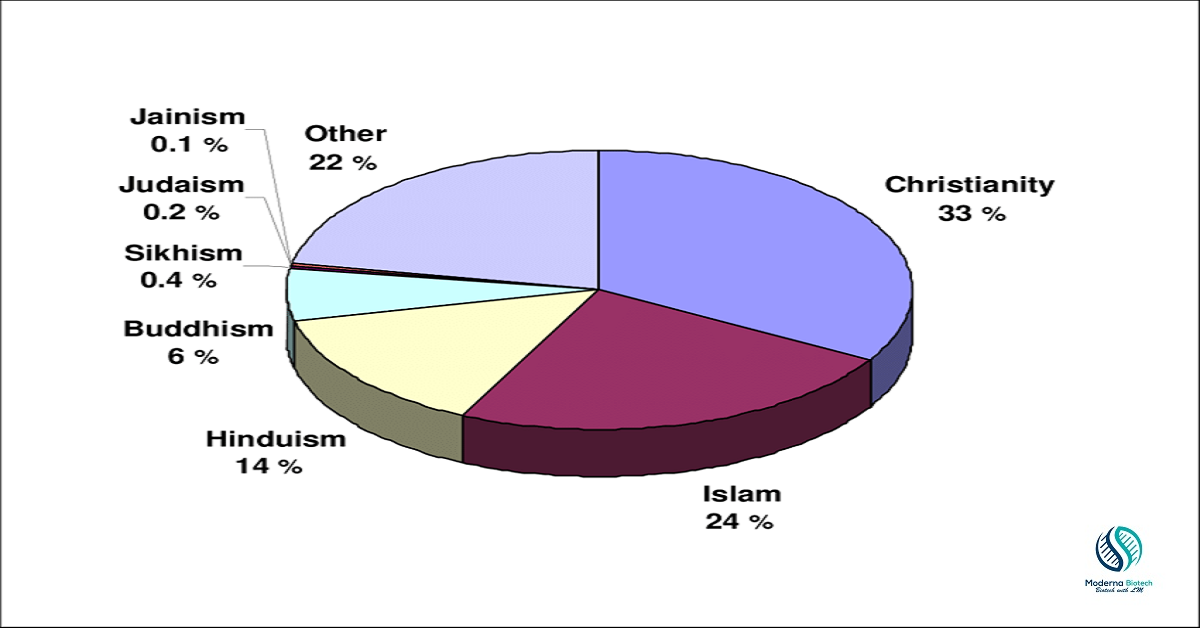
Religion is mainly a socio-cultural system of chosen deeds and practices, morals, worldviews, texts, holy places, divinations, ethics, or societies that relates mortality to supernatural, mystical, or divine elements. If you are looking for the top 10 religions in the world in 2023 then you are in the right place.
Religion is a system of sanctified belief and practices both in the physical and immaterial form’. Religion can serve the twofold role of ideology as well as an institution. Today, religion has assumed a more narrow-minded methodology.
Table of Contents
Why religion is important in our life?
Religion helps us in creating an ethical background and also a supervisor for values in day-to-day life. This particular method helps in the character building of a person. In other words, Religion acts as an intervention of socialization. Thus, religion helps in building values like love, empathy, respect, and synchronization. Next you’ll find Top 10 religions in the world 2023.
Top 10 religions in the world in 2023
1- Christianity:
Christianity is an Abrahamic monotheistic religion that is based on the life and instructions of Jesus of Nazareth. Its believers are known as Christians. Christians have faith in Christ, whose coming as the messiah was divined in the Hebrew Bible, named the Old Testament in Christianity, and recounted in the New Testament. It is one of the most powerful and top 10 religions in the world.

Christians believe in reasoning by faith. Through their belief in Jesus as the Son of God, and in his death and rebirth, they can have a right affiliation with God whose mercy was made once and for all through the demise of Jesus Christ. It is one of the largest or biggest religions in the world.
Christians are monotheistic, i.e. they have faith in that there’s only one God, and he made the heavens and the earth. This divine Godhead is made up of three parts: the Father (God himself), the Son (Jesus Christ), and the Holy Spirit.
2- Islam:
Islam is an Abrahamic monotheistic religion. As one of the top 10 religions in the world, The teaching of Islam is that there is only one God and that Muhammad is a prophet of God.
It is the world’s 2nd-largest religion with over 1.8 billion believers or 24.1% of the world’s population, recognized as Muslims. Islam is considered one of the best, largest, and most widely known religions in the world. It is one of the most powerful and top 10 religions in the world.

Muslims believe that Islam is a comprehensive and universal sort of prehistoric faith.
3- Irreligious affiliation:
Irreligion is the nonexistence, irrelevance to, or rejection of religion. Rendering to the Pew Research Center’s 2012 global study of 230 countries and regions, 16% of the world’s population is not linked with a religion, while 84% are allied.
Atheism is, in the extensive sense, an absence of belief in the presence of goddesses. Less broadly, atheism is a refusal of the belief that any gods exist.
4- Hinduism:
The religion of Hinduism is widely adopted in the Indian subcontinent and parts of Southeast Asia.
Unlike other religions, Hinduism has no one creator but is an alternative fusion of various beliefs. Around 1500 B.C., the Indo-Aryan people drifted to the Indus Valley, and their language and culture blended with that of the native people living in the region.
Most Hindus have a personal god or goddess e.g. Shiva, Krishna, or Lakshmi to whom they pray on a regular basis. It is one of the most powerful and top 10 religions in the world.
5- Zoroastrianism:
Zoroastrianism is possibly the world’s ancient monotheistic religion, originated by the Persian messenger Zoroaster. It is first documented in the 500s BCE, but numerous historians believe it was initiated as early as the 900s BCE. It is one of the most powerful and top 10 religions in the world.
Zoroastrianism became the prevailing religion of the vast Achaemenid Empire of Persia, and it sustained to play an important part in the region until the rise of Islam in the 700s CE. It is considered one of the oldest religions in the whole world.
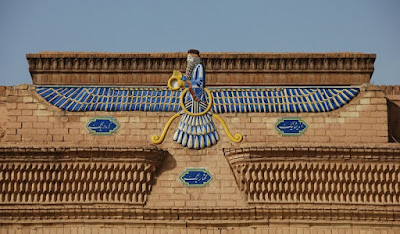
Many praise Zoroastrianism for affecting the expansion of other major religions. Zoroastrianism declined through the primitive era, and today there are fewer than 200,000 Zoroastrians as of the last reliable survey. However, there are some signs that many Kurds are adapting to Zoroastrianism, which they see as an inherited religion, which may reverse the long-declining population.
6- Buddhism:
Buddhism is considered a religion that was originated by “the Buddha” (Siddhartha Gautama) more than 2,500 years before in India. With around 470 million supporters, scholars deliberate Buddhism as one of the most important world religions. It is one of the most powerful and top 10 religions in the world.

Buddhism is known as the world’s fourth-largest religion. This religion has more than 520 million supporters and over 7 percent of the worldwide population.
The supporters of Buddhism are known as Buddhists. Buddhism covers a variety of traditions, beliefs, and mystical practices largely based on original teachings endorsed by the Buddha and subsequently interpreted philosophies.
7- Sikhism:
Sikhism is also a monotheistic religion that was initiated in the Punjab region of the Indian subcontinent around the end of the fifteenth century. It is one of the most powerful and top 10 religions in the world.
Sikh worship is chiefly to praise their one true God, denoted as Waheguru.
Sikhism’s foundation lies in the teachings of Punjabi Guru Nanak and his descendants. Many bases consider Sikhism a monotheistic religion, while others consider it a monistic and pantheistic religion.
8- Judaism:
Judaism is an ethnic religion that involves the collective cultural, religious, and legal practice and civilization of the Jewish people. Judaism is deliberated by religious Jews to be the manifestation of the agreement that God established with the Children of Israel. It is one of the most powerful and top 10 religions in the world.
The Hebrew God’s principal associations are not with other gods, but with the world, and more precisely, with the people he created.

Judaism thus originates with ethical monotheism: the belief that God is one and is apprehensive with the actions of mankind. According to the Tanakh (Hebrew Bible), God assured Abraham to make his offspring an inordinate nation. Judaism ordered the nation of Israel to love and pray to only one God. As one of the top 10 religions in the world, Jews are to imitate God’s love for people.
9- Jainism:
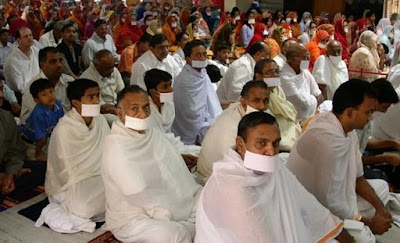
Jainism, conventionally known as Jain Dharma, is a prehistoric Indian religion. Jains are the followers of Jainism. Jains is mainly a word resulting from the Sanskrit word Jina, meaning “victor”. Jainism is Trans theistic, and Jains trace their mystical ideas and history through a sequence of 24 leaders or Tirthankaras
Jainism is a belief in self-help. There are no gods or divine beings that will help human beings. The three guiding values of Jainism, the ‘three jewels’, are the right belief, the right information, and the right conduct. The supreme belief of Jain living is nonviolence (ahimsa).
Lord Mahavir was the 24th and the preceding Tirthankara of the Jain religion. Rendering to Jain’s philosophy, all Tirthankaras were born as human beings but they have achieved a state of perfection or illumination through meditation and self-realization. They are the Deities of Jains.
10- Shintoism:
Shinto religion is also recognized as Kami-no-Michi. According to religious scholars this religion is classified as an East Asian religion.
This religion originated in Japan and practitioners of this religion consider it as Japan’s indigenous religion or a nature religion.
Shinto is a hopeful faith, as humans are thought to be essentially good, and evil is believed to be instigated by evil spirits. So, the purpose of most Shinto rites is to keep away evil spirits by purification, prayers, and donations to the kami. Hope you found enough information about Top 10 Religions in the world.

Top ten richest countries in the World 2021
Why religion is important in our life?
Religion holds a significant place in many people’s lives for a variety of reasons:
- Spiritual Fulfillment: For many, religion offers a sense of purpose and answers to fundamental questions about life, death, and the afterlife. It provides a framework for understanding the world and one’s role in it.
- Moral and Ethical Guidance: Religions often provide moral and ethical codes that guide adherents in making decisions and living a virtuous life. These codes can promote compassion, empathy, and a sense of responsibility towards others.
- Community and Support: Places of worship and religious gatherings create a sense of belonging and community. They offer emotional support during difficult times and celebrations during joyful moments.
- Coping with Challenges: Religion can be a source of comfort and strength during challenging times. Many people turn to their faith for solace, hope, and resilience when facing adversity.
- Cultural Identity: Religion is often intertwined with cultural identity. It can provide a sense of continuity with one’s heritage, language, and traditions.
- Social and Charitable Activities: Religious institutions often engage in charitable and community-oriented activities. They provide a platform for individuals to contribute to the welfare of society through volunteer work and donations.
- Rituals and Ceremonies: Religions offer rituals and ceremonies that mark important life events such as birth, marriage, and death. These rituals provide structure and meaning to these transitions.
- Philosophical and Existential Exploration: Many religious traditions encourage individuals to explore deep philosophical questions and engage in contemplative practices, which can lead to personal growth and self-discovery.
- Sense of Hope: Religion can provide a sense of hope, purpose, and optimism, especially in times of uncertainty. It can offer a belief in divine guidance and a better future.
- Interconnectedness: Some religions emphasize the interconnectedness of all living beings and the responsibility to care for the environment. This perspective can foster a sense of stewardship and environmental consciousness.
It’s important to note that the significance of religion varies from person to person. While it plays a central role in the lives of many, others find purpose and meaning through secular philosophies, humanism, or other belief systems. Ultimately, the importance of religion in one’s life is a deeply personal and subjective matter. (Top 10 Religions in the world)
Technology in Education pdf/essay | Importance of Technology in Education – Latest 2023
How to Use YesMovies: A Comprehensive Guide – Latest 2023
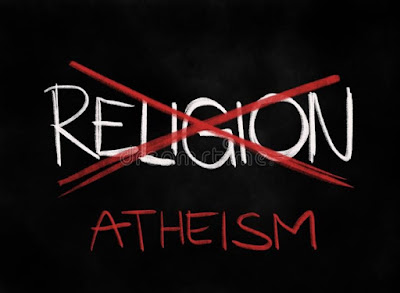
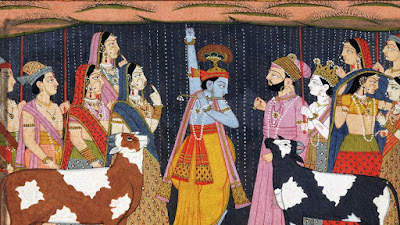





Great information
Thanks for your appreciation 🙂
Nice to hear that islam is among the top 10 religion in the world 😍🙂
why use cbd
Has anybody visited True Vapors? 🙂
Has anyone ever been to Vape-O-Rama Vape Shop in 2208 Hwy 190?